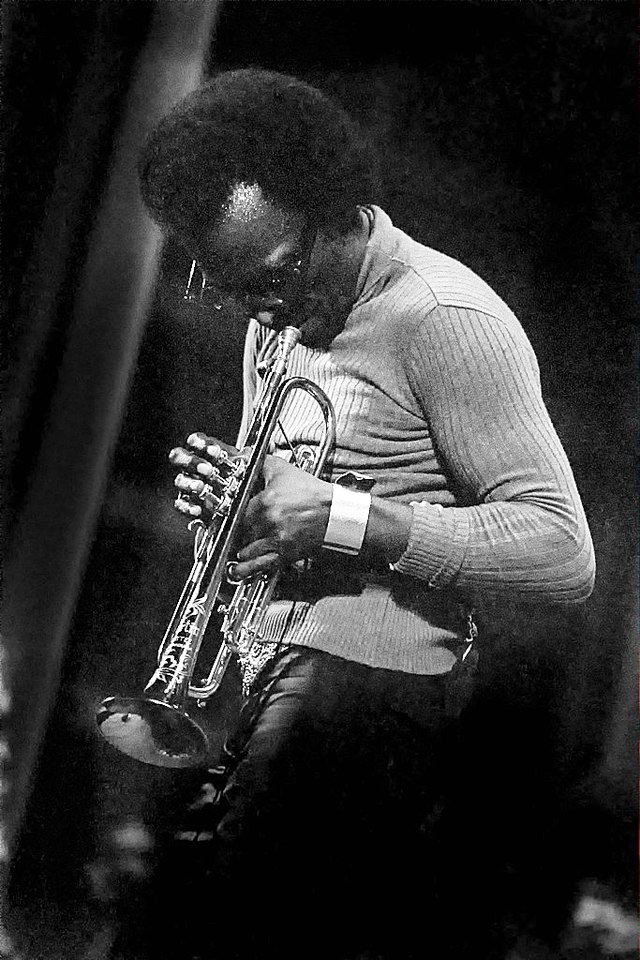
Introduction to Lesson 26
During the late 1960s and into the 1970s, there were many approaches to labeling jazz. These include jazz-rock, soul-jazz, jazz-funk or funky jazz, jazz-rock fusion, or the generic or all-encompassing term fusion. Moreover, there were different opinions as to the initial trailblazers that inspired these approaches to jazz.
For instance, Eileen Southern writes, "Miles Davis's Bitches Brew (1970) was the starting point for the style labeled 'jazz-rock'" (Southern 1997, 499). In Rock and Roll: An Introduction, Campbell and Brody state, "Bitches Brew is a true jazz/rock fusion" (Campbell and Brody 1999, 235). And in African American Music: An Introduction, the editors sum up Davis's Bitches Brew as being fusion (Burnim and Maultsby 2015, 181). After reading these authoritative sources, one may justifiably wonder who is correct. However, they all agree that during the late 1960s and into the 1970s, the term "fusion" referred to the practice of combining music characteristics from different music styles such as rock, soul, funk, and of course, jazz. "Fusion" was commonly used interchangeably with the labels above because it was the most closely associated with jazz.
Looking at the three references mentioned above, it appears that the terms “jazz-rock fusion,“ “soul-jazz fusion,“ and “jazz-funk fusion“ may be the best way to understand the music composed and performed by musicians during the 1970s through 1990s. In all cases, the operative word “fusion“ best describes their activity, as they sought to “fuse“ or combine various characteristics and performance practices from multiple music styles. Nevertheless, it is essential to avoid getting caught up on stylistic labels but instead focus on music characteristics, performances practices, creativity, and artistry. Stylistic labels are applied only as a guide and not as absolutes.






